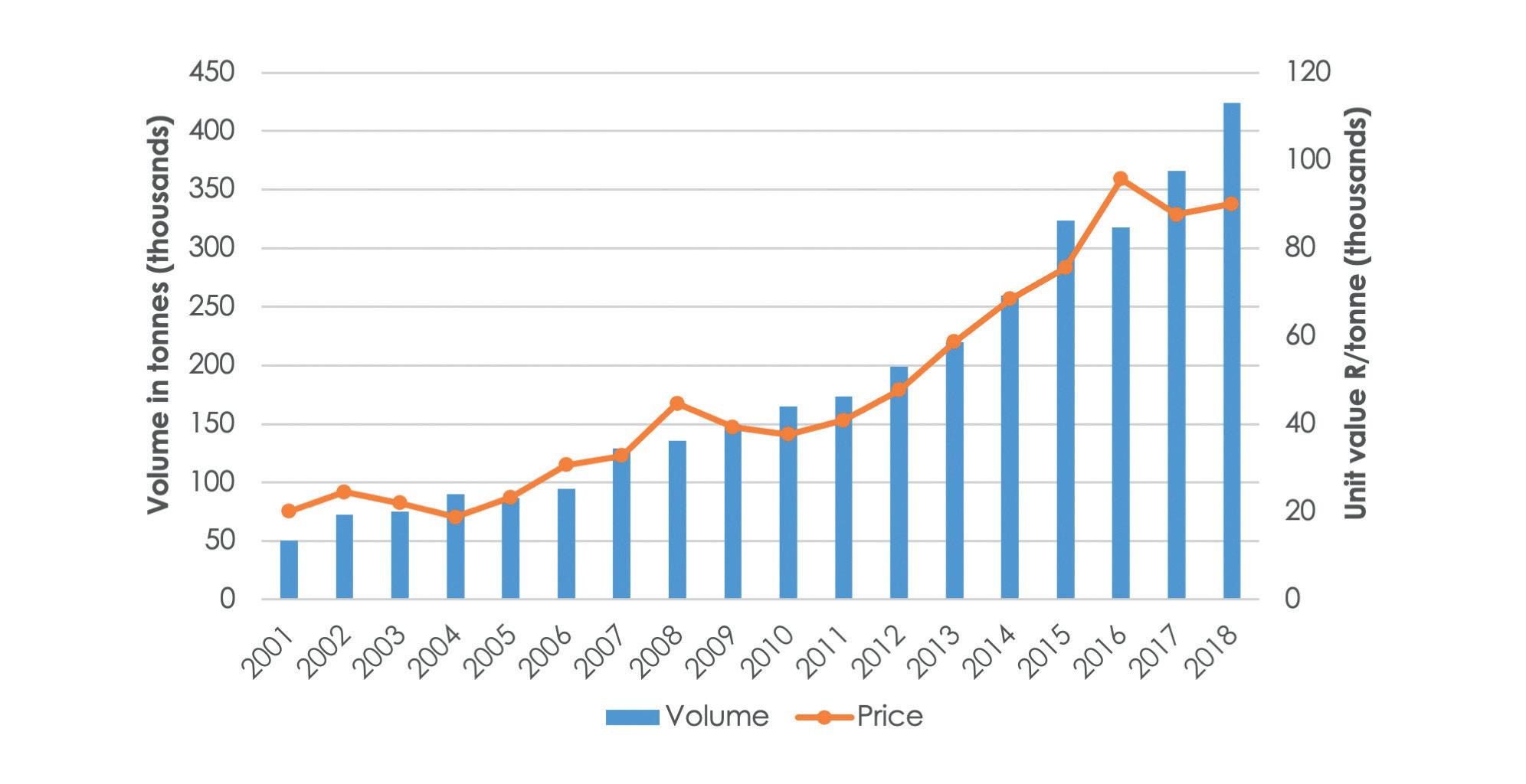
2 minute read
BICYCLE PARTNERSHIPS help farmers and youth move forward
by WCDOA pubs
by Giselle Terblanche, gisellet@elsenburg.com
GGovernment is unable to solve society’s problems alone and therefore partnerships with other organisations are vital. Thanks to such partnerships, various stakeholders were handed bicycles during the months of August and September. The bicycle is often seen as a symbol of mobility. It is a tool of empowerment and improvement of socio-economic conditions.
In one instance, seven bicycles were handed to pig farmers in Caledon. These farmers, known as Shaw’s Pass Emerging Farmers (SPEF), are a registered entity, consisting of 32 beneficiaries. Some of them own vehicles to travel the 9 km to the project site, while others have to hitch-hike. The bicycles handed over by the Western Cape Department of Agriculture and Qhubeka will greatly assist these farmers who do not have other means of transport. As a nonprofit organisation, Qhubeka changes lives by supplying commendable recipients of various projects with bicycles. Smallholder and subsistence farmers in the Swartland, Cape Winelands, Cape Metropole, Little Karoo, Central Karoo, Garden Route, West Coast and North West Coast also received bicycles.


The youth also benefited from this amazing initiative. The department, in collaboration with the Pedal Power Association, delivered
15 bicycles to Naastedrift Primary School in Vredendal. The arrangements were made through the Landbou Gemeenskap Ontwikkeling (LGO), a non-profit agricultural community development organisation based in Vredendal. The LGO nominated Naastedrift Primary School, since an interdepartmental committee had already decided to focus special projects at the school.
The LGO further contributed to the project by sourcing sponsors to give puncture-free “perma tubes” to the beneficiaries. A number of children who attend Naastedrift live on farms in the rural areas outside Vredendal. It is a challenge for many learners to get to school on time, since not all the areas have bus transport and therefore some of the learners previously had to walk far to get to school.
The beneficiaries expressed their sincere gratitude. One of them, fourteen-year-old Donovan Arries, a Grade 7 learner at the school, said he was very happy to receive the bicycle. “Previously I had to walk to school in the mornings and back home in the afternoons. Now I am less tired when I get to school, so I am able to concentrate better. I feel safer and can attend school even when it rains. I also have more time to spend on my homework.”
In addition, 20 bicycles were delivered to
Boontjieskraal Primary School near Caledon and 14 bicycles to VRT Pitt Primary School in Swellendam. These two schools were selected since they are part of the Junior LandCare initiative, which is implemented by the Sustainable Resource Management (SRM) programme of the department. Learners in the Swartland, Cape Winelands, West Coast and Central Karoo were also handed bicycles.
Through another partnership (this time with the Western Cape Department of Transport and Public Works), youth from the West Coast are now able to pedal to their place of learning. This project ties in with the Rural Youth Intervention (RYI) initiative, a strategic project of the Rural Development Programme of the Department of Agriculture, which seeks to contribute meaningfully to the overall well-being of youth in rural communities.
This collaborative initiative has identified potential students in the Swartland area as beneficiaries of the rural youth bicycle project. The students are currently studying at the West Coast College and are reliant on public transport, which is often erratic and unreliable, given the context of COVID-19. These students are also from low-income families. Through this initiative, they now have access to a bicycle: a personal empowerment tool to assist them to get to the College, while pursuing their tertiary education. A hand-over ceremony was held at the Chatsworth Path Onto Prosperity (POP) centre in September. POP centres function as a developmental hub for various community groups such as service centres for senior citizens, disability groups, dance groups, and community meetings.

In the words of the deputy directorgeneral of the department, Mr Darryl Jacobs: “You ride a bicycle forward, not backwards.” This statement symbolises government’s efforts to assist and support stakeholders with enabling tools to contribute to their development and to ultimately become better citizens. AP










